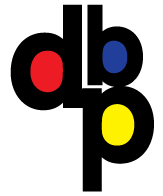Better Living Through Stupidity
I’ve been spending a lot of my time studying programming recently. It’s been one of the best learning experiences of my life, because it’s been one of the most frustrating. It’s been a very long time since I have felt this stupid.
I’m not at all good at programming. In fact, I’m really bad at it. It’s a way of thinking that is completely alien to me. Programming allows no flexibility in jumping from one idea to another — everything you write must be explicit and logical. Whereas my mind likes engage in flights of fancy, programming requires each line of code — every thought — to be a concrete part of a cohesive whole.
I also work with several brilliant programmers. It’s pretty humbling watching
masters at work while you struggle with the absolute basics. It reminds me of when I was starting to learn the piano and I couldn’t play a scale in the same direction with both hands. I could play them in opposite directions, but moving in parallel seemed incomprehensibly difficult. Even worse, it was easy for all my other teacher’s students, which made my failure even more humiliating. I only overcame this hurdle after sitting down for countless hours, cursing my own stupidity, playing until I didn’t even have the energy to be angry at myself. But because learning those scales was not easy, I gained more from the ordeal than the other students did. To this day, one of my primary reasons for the successes I have had has been the sheer degree of stubbornness I posses — stubbornness I gained learning those scales.
Despite the fact that programming has given my ego a beating, it’s done wonders for my mind. Taking on something that requires such discipline and logical progression from one thought to another has dramatically improved how I think. Just like when I finally learned to play scales in parallel, what I’ve learned from programming has seeped into my other skills. Now when I put words on the page, I look at each of them with extra attentiveness. I think about how each sentence modifies the ones that follow it, and I work even harder to choose the most clear and effective words to describe my thoughts. By improving a part of myself that is conspicuously lackluster, I’ve also amplified my strengths.
As people, we spend a lot of time nurturing our innate talents and ignoring whatever we don’t immediately understand. While everyone wants to feel “talented,” focusing on the things we find easy turns us into imbalanced, non-optimized human beings. What good is being gifted at math if you lack the powers to communicate your abstract thoughts into words? What good is understanding music while being completely ignorant of the physics that govern sound? Music without math is like cooking without heat, and ideas without the means of expression will forever remain silent. Limiting your attention to a small subset of knowledge impedes the possibility of greater revelation. Nothing ever occurs in a vacuum, so we must do our best to learn all we can — even the parts that are hard for us to understand.
Throughout history, all the great minds have had been Renaissance minds. To be a genius is to never be above someone else’s teaching. To the illuminated, the world is a classroom and every piece of knowledge is another step that elevates their perspective. They know a fundamental truth — that all knowledge is interconnected into a seamless whole. There is no single path towards Gnosis, only ascendancy or stagnation.
Those of us who truly want to grow must try to absorb everything, especially the things that make us feel stupid. Feeling stupid puts everything into perspective. It brings us back to beginning — back to the beginner’s mind. Beginners always know there is more to learn. And, even more important, they are always excited and willing to grow.
